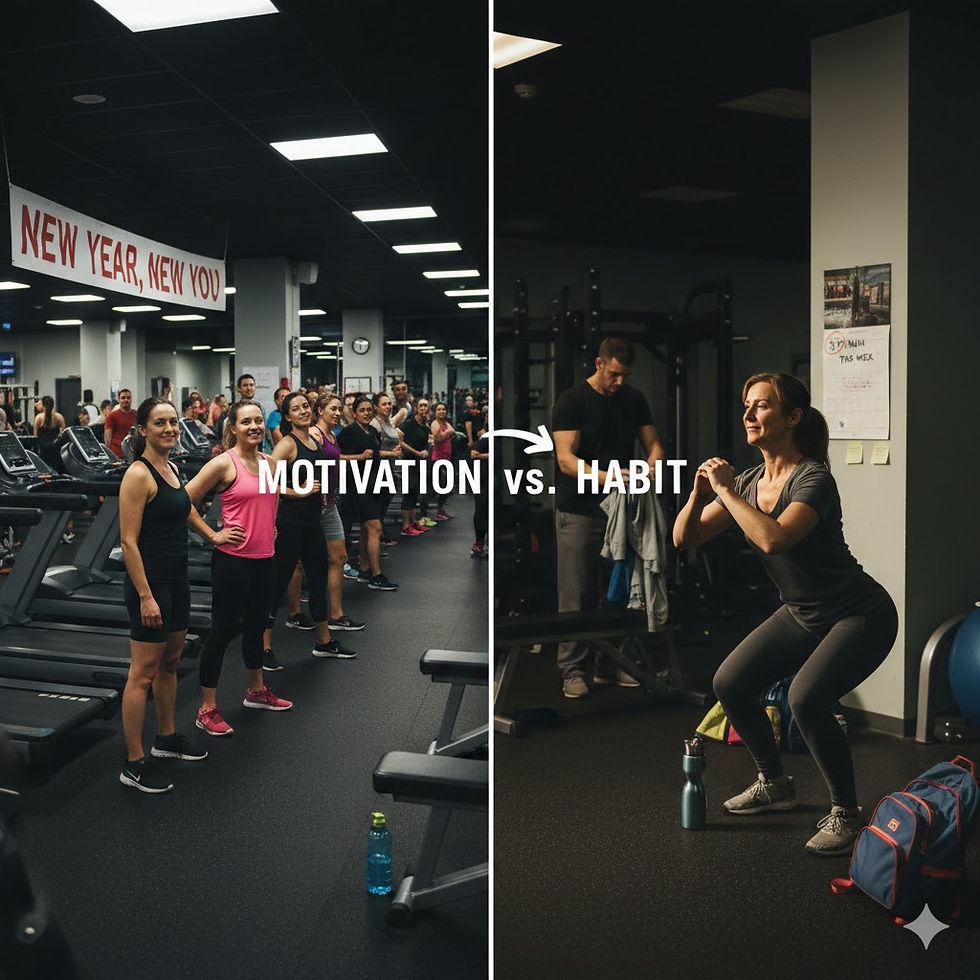The Silent Strain: How Stress Impacts Your Health (And What to Do About It)
- ross5156
- Jun 11, 2025
- 3 min read

UK & Ireland Face a Growing Stress EpidemicStress isn’t just an inconvenient side effect of modern life—it’s become a national health issue across the UK and Ireland.
Rising living costs, healthcare delays, job insecurity, and the pressure to "keep calm and carry on" are taking a serious toll. A 2023 Guardian article highlighted how chronic stress is eroding our physical and mental wellbeing in ways that are often overlooked.
This June, during Men’s Health Month, it's time to unpack what chronic stress really does to our bodies—especially for men—and how to stop it from becoming the silent saboteur of your long-term health.
🚩 What Exactly Does Stress Do to Your Body?
Stress isn’t inherently bad. In short bursts, it helps us stay alert and responsive. But chronic, ongoing stress shifts your body into survival mode for too long. Over time, that prolonged strain can break down your immunity, digestion, hormones, and even your heart (McEwen, 2007).
🔔 Short-Term Stress Signals (That Most of Us Ignore)
🛌 Trouble sleeping or waking up tired
🍼 Craving sugar, caffeine, or energy drinks
😡 Irritability or emotional volatility
🧐 Difficulty focusing or mental fog
📉 Skipping workouts or reaching for junk food
These are warning lights on your body’s dashboard. If we keep ignoring them, they evolve into much bigger problems.
🔍 Long-Term Stress Effects
According to the NHS and the HSE, chronic stress is associated with:
❤️ Higher risk of heart disease and stroke
🍔 Abdominal weight gain
😪 Persistent fatigue or burnout
🧐 Anxiety, depression, and emotional numbness
💉 Hormonal disruption (testosterone, cortisol, thyroid function) (Juster et al., 2010)
"Chronic stress changes how your body produces key hormones. Over time, this affects everything from metabolism to muscle recovery."— HSE Stress & Health Report, 2022
For men in particular, stress often presents physically before it shows up emotionally: chest tension, digestive trouble, headaches, and a mysterious lack of motivation.
Shared Struggles, Shared Solutions
Across both countries, the stress triggers are strikingly similar:
Healthcare backlogs
Housing and rent worries
Work-life imbalance
Social disconnection, especially among men over 40
Culturally, many men are taught to be silent about stress. But silence doesn't build resilience—it breaks it down. Addressing stress starts with acknowledging it.
🛠️ Six Ways to Start Stressing Less This Week
These research-backed strategies work because they’re simple, realistic, and effective. You don’t need a spa weekend to take control—just a plan.
Move DailyPhysical activity reduces cortisol levels and releases endorphins. Walking, lifting, or dancing all count.
Check In With Your BreathingBox breathing (inhale 4, hold 4, exhale 4, hold 4) helps reset your nervous system.
Prioritise SleepDon’t just get more sleep—get better sleep. Aim for 7–8 hours, limit blue light exposure, and create a calming wind-down routine.
Fuel Your BrainYour diet affects mood and mental clarity. Focus on foods like leafy greens, oily fish, nuts, and complex carbs.
Speak UpTalking to a coach, therapist, or friend changes everything. It’s not weakness—it’s wisdom.
Set Boundaries Like a BossSay no more often. Schedule breaks. Turn off notifications. Your wellbeing isn’t negotiable.
🧠 This Men’s Health Month: Let’s Redefine Strength
Strength isn’t just about physical power. It’s about facing what’s weighing you down and choosing to act.
If you’re a busy dad, overwhelmed professional, or just feeling out of sorts—you’re not alone. Stress doesn’t need to define you. It can be managed. And you can feel stronger, mentally and physically.
💪 Ready to Take the First Step?
At The FitBoss, we offer custom coaching for busy people who want results without overwhelm. Our hybrid coaching includes:
Flexible, science-backed training plans
Mental wellbeing strategies
Nutrition coaching grounded in real life
📨 Book a free consultation today and start building a stress-resilient routine that works for your body and your brain.
📱 Follow @TheFitBoss.ie on Instagram for daily stress-busting tips, humour, and support.
👨👩👦 About the Authors
Ross and Stephanie O’Loughlin are certified EQF Level 4 personal trainers and strength coaches based in Wexford/Wicklow, Ireland. With over a decade of combined experience, they help real people build sustainable, no-fluff fitness routines that support both physical strength and mental resilience.
Learn more at thefitboss.ie.
📄 References
Juster, R.-P., McEwen, B.S. & Lupien, S.J. (2010). Allostatic load biomarkers of chronic stress and impact on health and cognition. Neuroscience & Biobehavioral Reviews, 35(1), 2-16. https://doi.org/10.1016/j.neubiorev.2009.10.002
McEwen, B.S. (2007). Physiology and neurobiology of stress and adaptation: Central role of the brain. Physiological Reviews, 87(3), 873-904. https://doi.org/10.1152/physrev.00041.2006



Comments